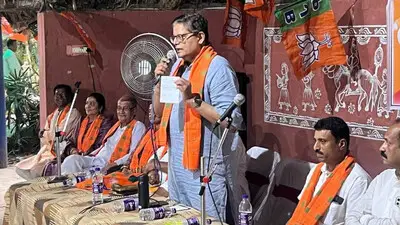Recommended Stories
"In the book, I focus on the story of gender violence in the 1971 war of Bangladesh to probe the relationship among nation, history and women - one of the most vulnerable groups in postcolonial South Asia," she says.
"Moving beyond the external story of the war as a clash of ideologies and struggle for power between rivals India and Pakistan and East and West Pakistan, I tell the story of the war as a human event of individual losses and personal tragedies suffered by both women and men. Their individual stories articulate a collective loss of humanity that transcends the politics of history and nation."
"Combining oral testimony with archival research in India, Pakistan and Bangladesh, I weave together the social, political and cultural history of the subcontinent after the partition of India and Pakistan in 1947 to show to show the gaps between the people and their governments, memories and history," says Saikia, Hardt-Nickachos Chair in Peace Studies and professor of history at Arizona.
Based on several oral accounts, this book, published by Women Unlimited, traces the multiple experiences of Bangladeshi women in the 1971 war that led to the creation of Bangladesh.
Saikia spent extended periods of time from 2001 in Bangladesh, Pakistan and India meeting, talking, listening and sharing with people their stories of the war. "It was a journey into deep pain and unforgettable memories of loss; but also of incredible resilience and heartening human compassion. Every time I despaired about the South Asian human community, I was immediately reminded of the inexhaustible source of human endurance and respect for fellow human beings, and I became intimately aware of the capacity of good and evil within us," she says.
Almost all of them speak for the first time about their experiences, and about the social, political and medical work they did during the war. "In listening to them we learn first-hand of the horrors of violence, and of the unfinished business of the Partition of 1947 that surfaced, once again, in 1971."
In addition, a few men recollect their wartime brutality as well as their post-war efforts to regain a sense of humanity, to reconcile and heal unresolved traumas.
The book sheds new light on the relationship among nation, history and gender in postcolonial South Asia, by not only interrogating the making of a new national, but simultaneously posing a challenge to post-1971 historiography in Bangladesh, highlighting the many `absences` in the official and unofficial histories offered so far.
In the final section of the book, Saikia writes about the memories of women as soldiers. The two narratives shift focus from women as victims and healers to the more active role that they played in the war as combatants. "This is an important issue to consider when we revisit 1971 and the experiences of Bengali women who were both victims and agents of violence, acted on by others as well as acting on their own volition to fight on behalf of the nation."
"In listening to their narratives, we are painfully reminded of two women`s passion and determination that motivated them to jump into the thick of battle and the subsequent discrimination that they suffered because of their gender in the male dominated turf war, so that neither of them has received official recognition as `mukti jouddhas` (war heroes`)," she writes. Only two women - Taramun Bibi and Sitara Begum - have been recognised as `mukti jouddhas`.












